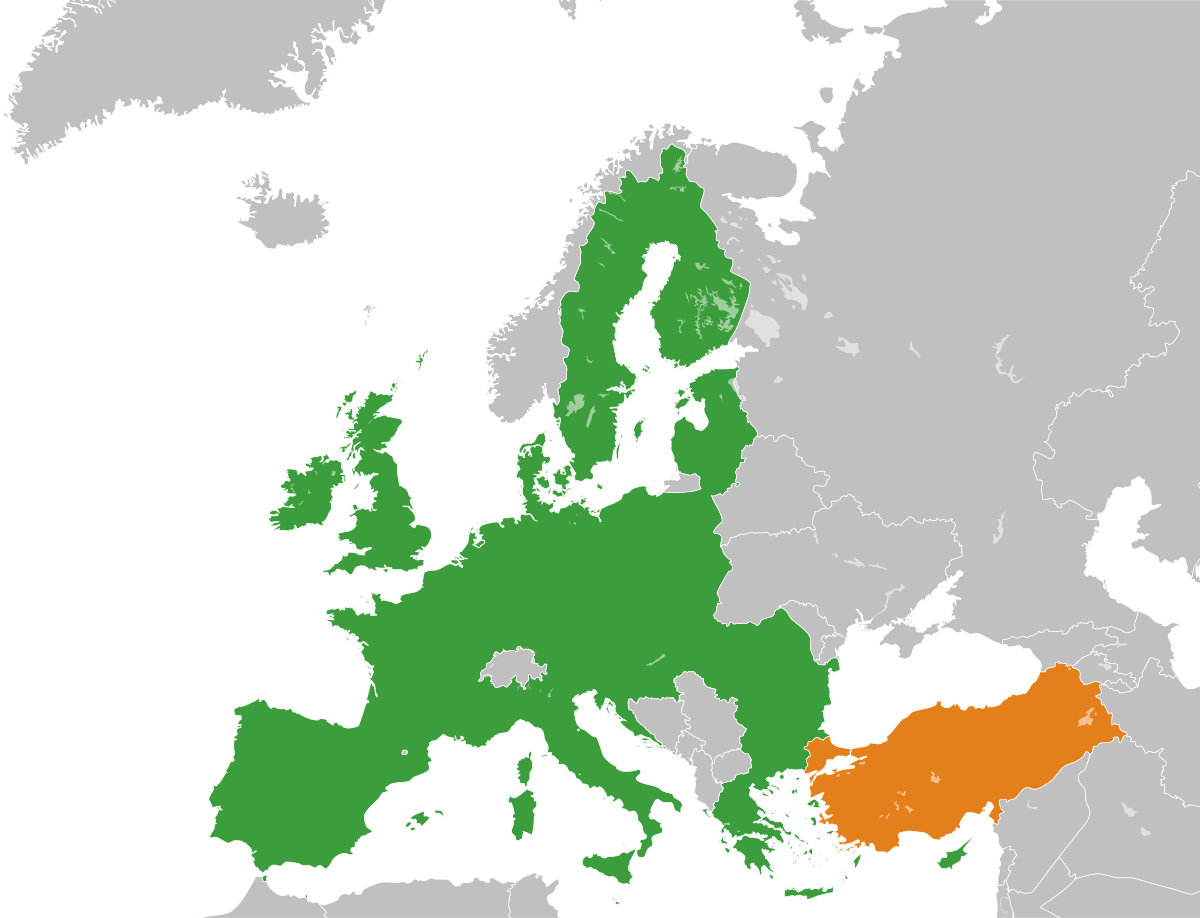Turkey EU-entry deal suspended
March 15, 2019 | Expert Insights
The European Parliament urged the EU to suspend membership negotiations with Turkey as a result of democratic backsliding in the country.
Background
Turkey is a transcontinental country located mainly in Western Asia, with a smaller portion on the Balkan Peninsula in Southeast Europe. Relations between the European Union (EU) and Turkey was established in 1959, and the institutional framework was formalized with the 1963 Ankara Agreement. The EU and Turkey have a common land border through the EU member states of Bulgaria and Greece.
Turkey was one of the first countries to become a member of the Council of Europe in 1949. The country was also an associate member of the Western European Union from 1992 to its end in 2011. Turkey signed a Customs Union agreement with the EU in 1995 and was officially recognized as a candidate for full membership on 12 December 1999, at the Helsinki summit of the European Council.
Negotiations for full membership were started on 3 October 2005. Progress was slow, and out of the 35 Chapters necessary to complete the accession process only 16 had been opened and one had been closed by May 2016. Early 2016 a refugee deal between Turkey and the European Union was intended to accelerate negotiations after previous stagnation and allow visa-free travel through Europe for the Turks.
Since 2016 accession negotiations have stalled. The EU has accused and criticized Turkey for human rights violations and deficits in the rule of law. In 2017, EU officials expressed that planned Turkish policies violate the Copenhagen criteria of eligibility for an EU membership.
On 26 June 2018, the EU's General Affairs Council stated that "the Council notes that Turkey has been moving further away from the European Union. Turkey’s accession negotiations have therefore effectively come to a standstill and no further chapters can be considered for opening or closing and no further work towards the modernization of the EU-Turkey Customs Union is foreseen."

Analysis
The European Parliament has urged the EU to stop negotiations with Turkey in regard to its accession to the Union. The European Union assembly made the appeal in a non-binding resolution approved on Wednesday, March 13, 2019, in Strasbourg, France.
Democratic backsliding is the gradual decline in the quality of democracy. Democratic backsliding may occur when essential components of democracy are threatened, such as free and fair elections being degraded, liberal rights of freedom of speech and association decline, the rule of law is threatened and the powers of the judicial systems are weakened.
The call to cancel negotiations is directed at EU governments and the European Commission, the bloc’s executive arm, which together run the accession process with the Turkish government. Turkey’s Foreign Ministry dismissed the call as “meaningless.”
The resolution upholds a suggestion by the EU Parliament’s foreign-affairs committee saying the bloc should “formally suspend” the entry negotiations with Turkey. The 751-seat assembly rejected floor amendments by right-of-centre members who had sought to toughen the recommendation by urging the EU to “terminate” or “formally end” the process.
“The membership to the EU is a strategic objective for Turkey,” the Foreign Ministry said in the statement, urging the European Parliament to support visa liberalization for Turkish citizens, in return for Turkey’s efforts to stem a flow of refugees to Europe, and update the Customs Union to increase its economic integration in the bloc.
Another reason for the EU to want to suspend negotiations is due to the financial crisis that Turkey is currently struggling with. The Lira has fallen to a record low and the $900 billion economy is teetering towards a crisis. The relationship between the U.S and Turkey has grown strained over recent months. Turkey’s President Erdogan has also pledged to buy the S-4000 missile defence system from Russia, a move that strained relations with the broader NATO alliance.
Assessment
Our assessment is that the EU has only decided to formally suspend negotiations with Turkey at the present. We feel that the decision to terminate the negotiation is likely to put the migrant deal in jeopardy. We believe that this figurative gesture is an index of public sentiment in Europe amid the rise of nationalist political forces.








Comments